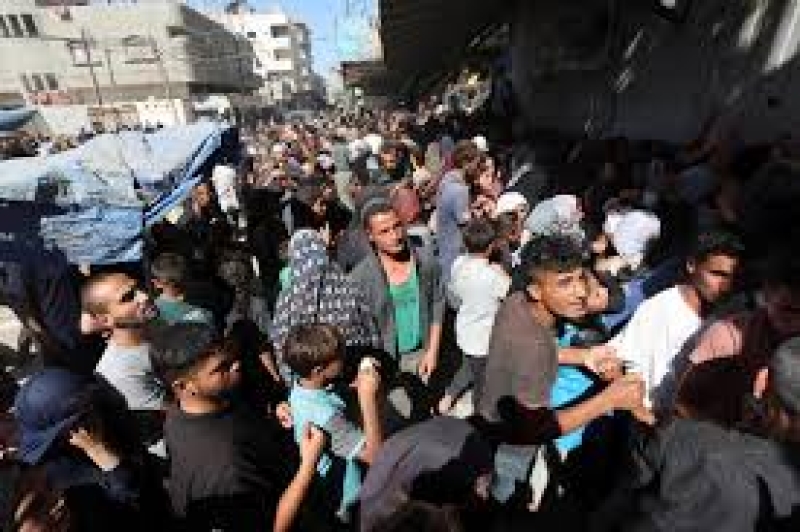- Advisory Council Approves Dhaka Central University Ordinance |
- Election Campaigns Begin Ahead of February 12 Polls |
- Illegal topsoil extraction threatens ‘Gaillar Haor’, croplands in Sunamganj |
- Nation's future hinges on ‘Yes’ vote in referendum: Land Adviser |
- US doesn't take sides in Bangladesh elections: Ambassador Christensen |
Fragile Gaza Truce Enters Second Week Amid Tensions

A fragile truce in Gaza entered its second week on Sunday, following the release of four Israeli hostages and around 200 Palestinian prisoners, triggering scenes of joy. However, the deal faced complications as a last-minute dispute blocked the expected return of displaced Palestinians to Gaza’s devastated northern regions.
The second hostage-prisoner swap under the ceasefire deal, completed on Saturday, was marred by Israel’s decision to delay Palestinian access to the northern Gaza Strip. Israel stated it would maintain the blockade until a civilian woman hostage, identified as Arbel Yehud, was released. A Hamas source confirmed that Yehud would be freed as part of the third swap scheduled for next Saturday.
This latest dispute highlights growing concerns about the future of the truce, which began on January 19. The multi-phase deal, which involves the gradual release of hostages and prisoners, faces significant challenges due to deep distrust between Israel and Hamas.
As of now, seven hostages and 289 Palestinians have been freed, with one Jordanian prisoner also released by Israel. The ongoing humanitarian crisis in Gaza, compounded by the blockade, remains dire. While the truce has allowed a flow of aid—food, fuel, and medicines—into the region, the United Nations warns that conditions remain critical.
In Gaza, hundreds of displaced Palestinians were prevented from returning to their homes in the northern areas, as Israeli military vehicles blocked key routes. Some, like Rafiqa Subh, expressed their desperation to return, even to homes now reduced to rubble. "We miss our homes so much," Subh said, vowing to wait "even if we have to sleep by the checkpoint."
The release of the four hostages on Saturday brought relief to their families, though fears remain for the 87 hostages still held in Gaza. As protests continue in Israel, families of the remaining hostages have voiced their concerns, with demonstrators chanting, "We will fight until the last hostage returns."
The October 7 attack by Hamas, which sparked the conflict, killed 1,210 people in Israel, mostly civilians. In retaliation, Israel’s offensive has resulted in at least 47,283 deaths in Gaza, primarily civilians, according to the Hamas-run health ministry.

